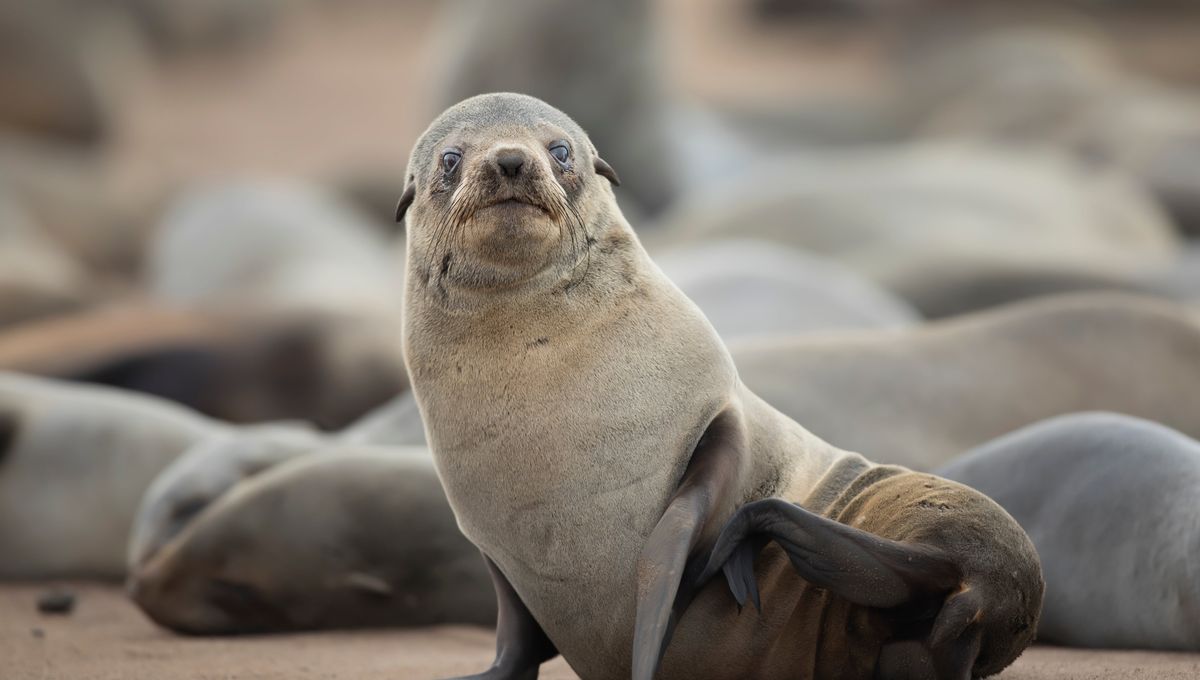
Cape fur seals at popular beaches across South Africa have been exhibiting uncharacteristically aggressive behavior, including biting beachgoers and other animals along a roughly 650-kilometer (404-mile) stretch of coastline. With more and more seals tested for diseases as a result of this, experts are concerned about the rise of rabies within the species.
As well as the uptick in aggressive behavior reported by surfers in the area, another Cape fur seal (Arctocephalus pusillus) washed ashore with facial injuries that could only have been caused by a seriously aggressive animal. In May, a single seal bit three surfers. Due to the rising level of public concern, four seals were sent for rabies testing.
“Although the behaviour looked ‘rabid’, our best scientific knowledge was that seals don’t get rabies,” Dr Tess Gridley, founding director of Sea Search, an NGO specializing in marine mammal research, told Al Jazeera. Seals have only been reported to carry rabies once before, in an incident off the coast of Svalbard in 1980.
However, three out of the four seals tested positive for rabies, and since then, that number only seems to be climbing. In July, the Guardian reported that the number had reached nine, while the latest figures suggest that 17 of the animals have tested positive.
Researchers are looking at when and where rabies could have entered the population, with the first reports of seal behavior changes dating back to 2021. The testing is done on euthanized animals, which makes it difficult to tell how prevalent the disease is within the 2-million-wide population of seals living along the south Angola and South African coastline.
“It’s a really tricky situation,” Gregg Oelofse, the coastal manager for the City of Cape Town, told The New York Times. “There’s no global reference point for dealing with rabies in a marine mammal species.”
Rabies is spread through saliva, which is why the biting behavior of the seals is considered so troubling.
Not everyone exposed will develop the disease, but at present, there is no known cure for rabies once it has affected the central nervous system and symptoms, which include fever, pain, and in later stages, a fear of water, begin. Typically, those with symptoms die within four weeks of their symptoms first appearing.
However, a course of treatment known as post-exposure prophylaxis, or PEP, can help to prevent deaths in those with suspected bites by stopping the infection from progressing.
Despite frequent contact between seals, beachgoers, and surfers, the disease has not appeared in the local human population, though the reasons for this are not clear. The New York Times reports that 72 people have been bitten by seals since 2021, with eight of those seals later confirmed to be infected with rabies.
The City of Cape Town warned the public in June that anyone bitten themselves or anyone with a pet that gets bitten should seek immediate medical or veterinary attention.
“This precaution applies to the entire Cape Peninsula coastline. Any person bitten by a seal is urged to seek immediate medical attention and to notify the relevant authorities.”
Source Link: World's First Serious Rabies Outbreak In Marine Mammals As Cape Fur Seals Test Positive